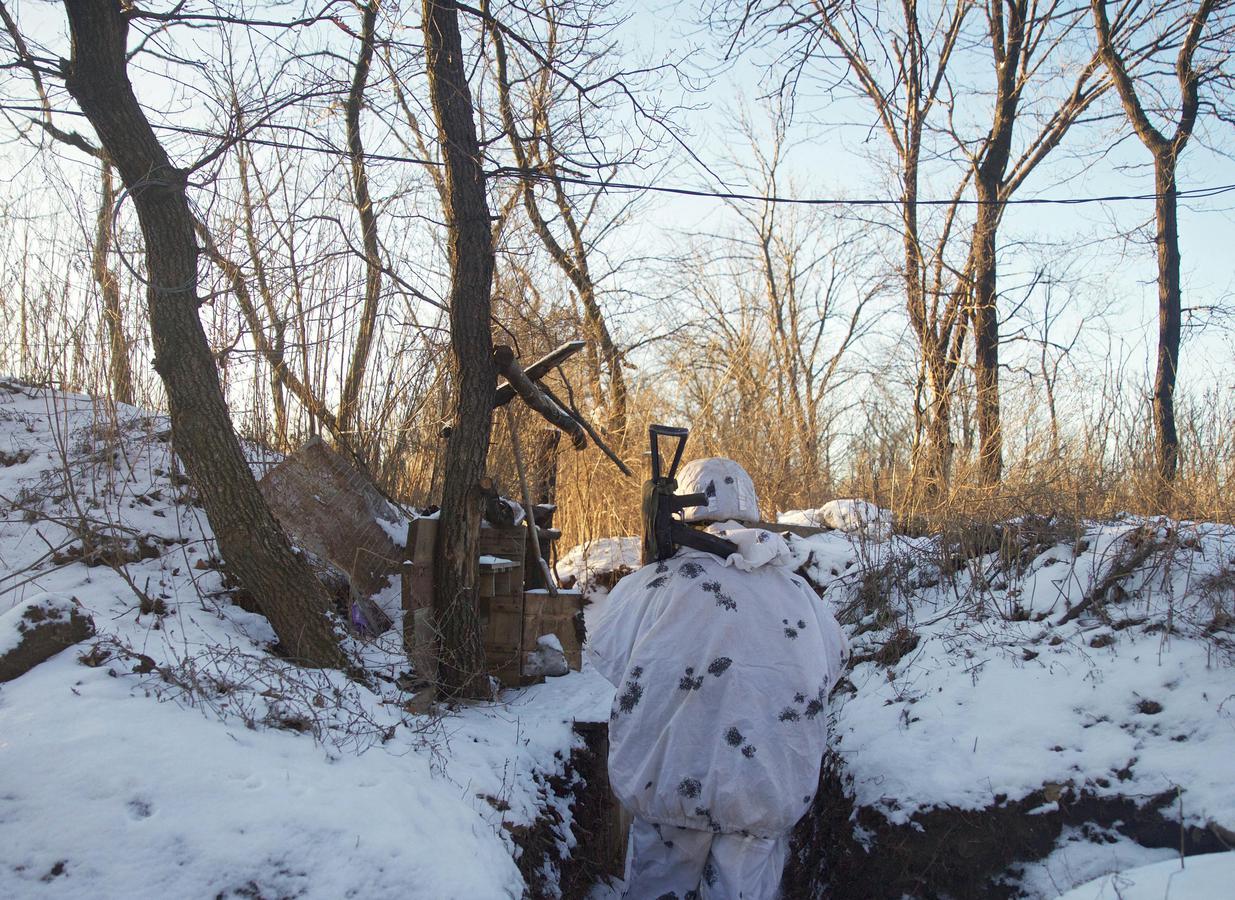The United Kingdom has warned Russia that it will face severe economic sanctions if it installs what Britain calls a puppet regime in Ukraine.
“There’ll be very serious consequences if Russia takes this move to try and invade but also install a puppet regime,” Britain’s deputy prime minister Dominic Raab told Sky News on Sunday.
A day earlier, London accused the Kremlin of considering a candidate as a pro-Russian leader without providing evidence.
The accusation by the British foreign ministry came at a time of high tensions between Russia and the West over Russia’s massing of tens of thousands of troops on its borders with Ukraine. Moscow has insisted it has no plans to invade.
The ministry said Russian intelligence officers had allegedly been in contact with a number of former Ukrainian politicians as part of plans for an invasion.
It claimed it had information the Russian government was considering former Ukrainian lawmaker Yevhen Murayev as a potential candidate to head a pro-Russian leadership.
“The information being released today shines a light on the extent of Russian activity designed to subvert Ukraine and is an insight into Kremlin thinking,” British Foreign Secretary Liz Truss said in a statement.
“As the UK and our partners have said repeatedly, any Russian military incursion into Ukraine would be a massive strategic mistake with severe costs,” Truss added.
Britain also said it had information that Russian intelligence services were maintaining links with “numerous” former Ukrainian politicians, including senior figures with links to ex-President Viktor Yanukovich, who fled to Russia in 2014 after three months of protests against his rule.
“Some of these have contact with Russian intelligence officers currently involved in the planning for an attack on Ukraine,” the British foreign office statement said.
Prime Minister Boris Johnson’s Downing Street office also said the premier was seeking to increase pressure on Russia this week by calling for European counterparts to come together with the US in order to face down any possible Russian invasion.
The US has echoed Ukraine’s claims of a looming Russian “invasion” since November, though Moscow has brushed off the accusations as “fake news” while insisting on talks with the US and NATO on security guarantees in Europe instead.
read more: In new snub to Israel, Kuwaiti tennis player refuses to face Israeli player in UAE tournament
The UK’s accusation against Russia came after the top US and Russian diplomats have failed to make a major breakthrough in talks to solve the crisis over Ukraine, although they agreed to continue the talks.
Meanwhile, the RIA news agency had earlier reported that Truss would visit Moscow in February to meet her Russian counterpart Sergei Lavrov, while Russian Defense Minister Sergei Shoigu and his British counterpart Ben Wallace have also agreed to have a meeting.
Amid the intensifying crisis, the US State Department earlier this week had approved shipments of US-made missiles and other weapons from NATO allies Lithuania, Latvia, and Estonia to Ukraine. The weapons arrived in Kyiv on Saturday.
Washington also announced it would begin the process of shipping $200 million worth of anti-armor missiles, ammunition, and other equipment to Ukraine in the coming days.
The UK, for its part, supplied 2,000 missiles and a team of military trainers to Ukraine this week.
US Sen.: Sending American troops to Ukraine would be ‘sacrificing them’
In an interview set to air on Sunday, US Sen. Chris Coons (D-DE) said that, should Russia invade Ukraine, sending US troops to the country, “would simply be sacrificing them.”
“I would not support sending American troops into Ukraine in response to a Russian invasion, because frankly, I think we would simply be sacrificing them. I think the Russians would escalate dramatically,” Coons told Greta Van Susteren in the interview.
However, on a possible Russian invasion, he said, “I do think that we should provide as much support as we possibly can from our NATO allies that are immediately adjacent to Ukraine.”
Last month, the Russian government made demands on NATO and Ukraine about the future of their relationship, calling on the Western military alliance to deny Ukraine membership to NATO and to roll back its military deployments.
Moscow also proposed that the US not establish any military bases in the former Soviet states that are not part of NATO, and not develop a bilateral military alliance with them.
Washington has rejected the proposals as “non-starters.”
Russia has repeatedly warned that Moscow will act if the US-led NATO military alliance crosses its red lines in Ukraine.













